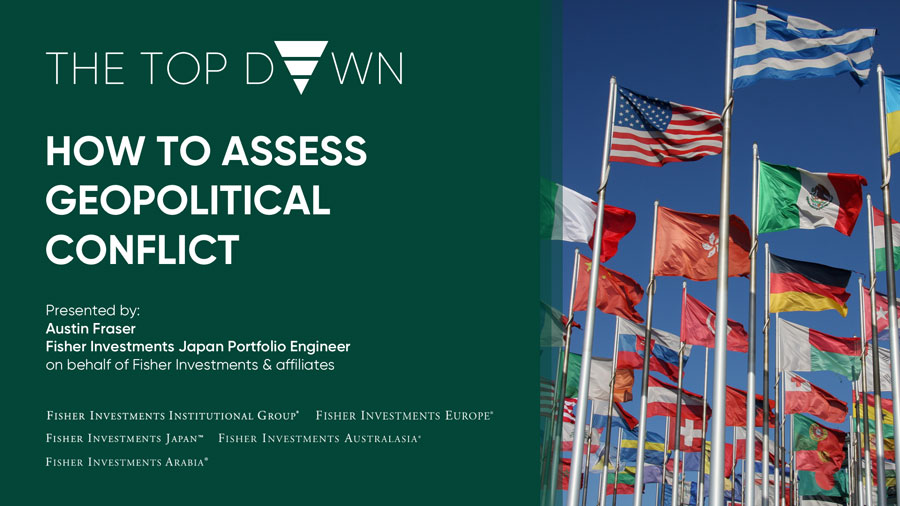Personal Wealth Management / Politics
Lessons From Italy’s Latest Political Drama
In our view, the latest events likely extend political gridlock, which our analysis shows is generally positive for equity markets.
Editors’ note: Our political commentary is intentionally non-partisan. We favour no politician nor any political party globally and assess political developments solely for their potential economic and market impact.
In all of last year’s chaos and mayhem, global political aficionados may have noticed one thing was absent: Italian political theatrics. But it is absent no more, as former Prime Minister Matteo Renzi pulled his upstart Italia Viva party from the governing coalition Wednesday, threatening its survival. We don’t think this is a terribly momentous event for Italian equity markets, which given the country’s history are likely rather familiar with unstable governments. Long-term interest rates don’t seem bothered either, as we will show momentarily. But in our view, the story highlights the degree of political gridlock entrenched in Italy—keeping legislative uncertainty low even as political squabbling spikes—which our analysis shows is generally positive for equity markets.
The now-splintering coalition has been in place since late-2019, when Matteo Salvini, leader of the nationalist party known as The League, pulled his party from a coalition with the anti-establishment Five Star Movement (M5S). At the time, Salvini was fresh off a much-photographed beach tour (those were a thing then) and riding a wave of popularity (pun intended). He reportedly sought to capitalise by forcing snap elections, perhaps thinking he may win an outright majority, which would theoretically eliminate the need to coalesce with a party that wasn’t very aligned with his ideologically. But Renzi, then influential with the centre-left Democratic Party (PD), opened coalition talks with M5S, and they eventually yielded a left-leaning multiparty coalition. Shortly after that, Renzi and some of his supporters left the PD and formed the small, centrist Italia Viva, which remained part of the coalition. But pandemic-related squabbling apparently nibbled away at the parties’ unity, and a disagreement on how to spend €36 billion of EU aid reportedly prompted Renzi’s exit.
What comes next isn’t clear. Giuseppe Conte remains prime minister, and according to Italy’s political processes, he could try to preserve the coalition with a cabinet reshuffle and a confidence vote in a minority government. Or he could resign, get a fresh request from President Sergio Mattarella to form a new government, and try again from scratch. Or, Italy could hold a snap election, potentially paving the way for Salvini and The League to re-enter the government. Such outcomes are unpredictable, in our view. However it plays out, though, we think the reality of a very gridlocked, internally fractured Italian government probably won’t change. That may further delay economic reforms, but it also makes radical leftist or nationalist change unlikely, and we think markets have already shown their comfort with the gridlocked status quo.[i] Italian 10-year yields, which our research indicates typically reveal debt jitters by rising fast, don’t seem bothered—they closed on Thursday at 0.64%, well below the US and UK.[ii] That is a 0.05 percentage point gain from Wednesday, but to a level that is at the low end of the range yields have traded in over the last year.[iii]
In our view, this saga’s primary significance is symbolic. For years, financial commentators we follow have warned M5S would not only find a way to undo the precious few reforms Italy managed to pass during the 2010 – 2013 debt crisis, but would pass several measures they viewed as anti-market that could even lead to the country’s exiting the euro. But that didn’t happen—too much gridlock. We think it is fair to say that a government that can’t even agree on how to spend €36 billion in so-called free money is also a government that can’t add public sector bloat, make labour laws unnavigable or anything else many commentators have warned of for years. (Much less exit the euro!) Let that be a lesson: Even when one extreme party enters government, the gridlock that comes with a multiparty coalition frequently forces moderation. Keep that in mind as other European nations go to the polls this year.
Keep it in mind, too, as you watch the US Congress this year. No, the US doesn’t have a raucous multiparty system like most European nations. But the two major US parties each have their own factions and disagreements internally. The Democratic Party, which narrowly controls America’s Congress, has sharp divisions between its progressive and moderate wings. Politicians on both ends publicly acknowledge they agree on little. Factional disagreement promotes gridlock just as much as squabbling amongst small parties in Italy. Combine that internal splintering with the Democrats’ tiniest majority in modern history, and it is a recipe for very, very little getting done.[iv]
Therefore, in America and Italy alike, we think equity markets are unlikely to have to grapple with a high likelihood of major change, and we view that relative lack of uncertainty as a positive.
[i] Source: FactSet, as of 14/1/2021. Statement based on the MSCI Italy Index.
[ii] Source: FactSet, as of 14/1/2021.
[iii] Ibid. Statement based on Italian 10-year yields in the last 12 months.
[iv] Source: US House of Representatives and US Senate, as of 14/1/2021. Statement based on the Democratic Party’s edge in the House, which the is smallest since 1900 and the Senate, which is split 50 – 50.
Get a weekly roundup of our market insights.
Sign up for our weekly e-mail newsletter.

See Our Investment Guides
The world of investing can seem like a giant maze. Fisher Investments UK has developed several informational and educational guides tackling a variety of investing topics.




